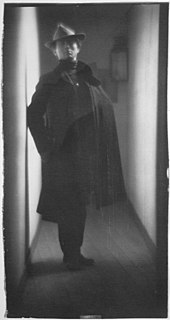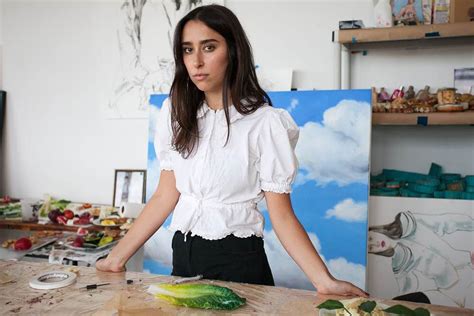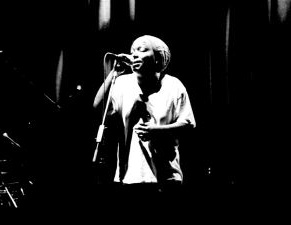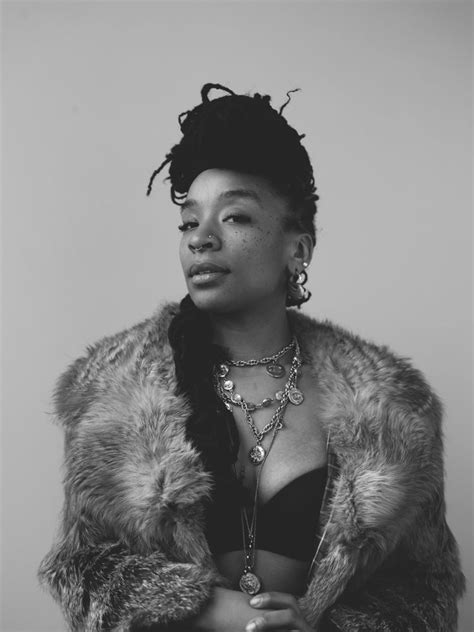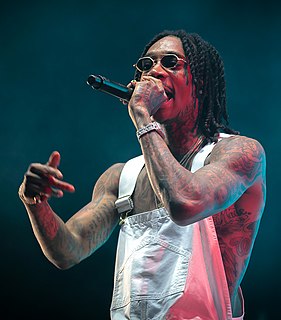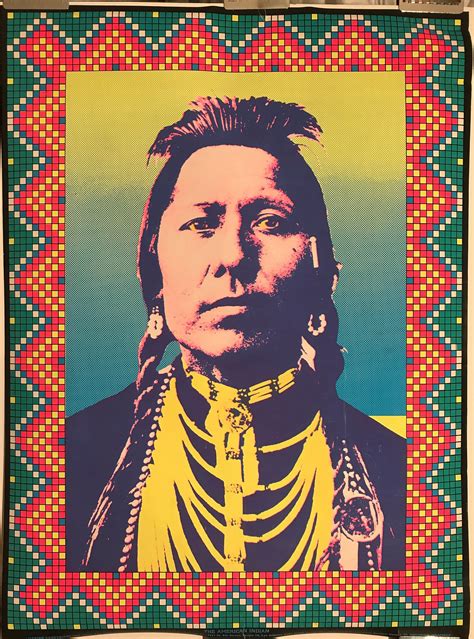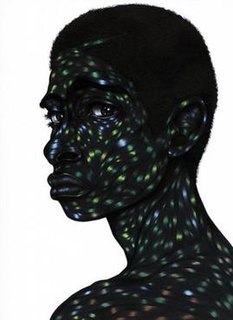A Quote by John Waters
I hate it when people say, I'm an artist. I think, well, I'll be the judge of that. And I don't think artist is a job description. It's a critique, a favorable critique, that someone else might apply to your work. I guess in the art world I'm not exactly a photographer, but I do use photography.
Related Quotes
The Marxist critique is only a critique of capital, a critique coming from the heart of the middle and petit bourgeois classes, for which Marxism has served for a century as a latent ideology.... The Marxist seeks a good use of economy. Marxism is therefore only a limited petit bourgeois critique, one more step in the banalization of life toward the "good use" of the social!
There’s no “correct path” to becoming a real artist. You might think you’ll gain legitimacy by going to university, getting published, getting signed to a record label. But it’s all bullshit, and it’s all in your head. You’re an artist when you say you are. And you’re a good artist when you make somebody else experience or feel something deep or unexpected.
The only way to make a criticism of something is to really participate in it. I'm a completely capitalist person. I participate in commodity culture and the fashion world. High art is a money-making vehicle. We're not making art in a vacuum. We're not shopping in the woods. These are all things that we do within the larger system of capitalism. For me to critique it, I'm also participating in it. That's obvious, I feel. In my work, I participate in the things that I critique. I satirize the things that I love and know well and find problematic.
I went to an art high school in Washington D.C., and I majored in visual art. When I started there, I was horrible - couldn't draw, couldn't sketch, couldn't do anything. I remember at one point I came to terms with the fact that I had to work my ass off to do well and that's exactly what I did. I drew and drew and drew, and it worked - I ended up getting the award for best artist and went on to apply to design school because I loved it so much. I think it really speaks to the idea that you can in fact excel at whatever you put your mind and your heart to.
As an artist, illustrator, and photographer, most of my daily work was formed around the Art & Entertainment business, which was about packaging ideas that looked like they were crafted as artist ideas. In the distributed products, my artist credit was hidden inside the package of the artist or entertainment personality.
Utopians don't say, 'The world's corrupt, women make less money, people of color are oppressed at every turn.' You don't list the problems of the world; you describe a world in which those things aren't the case. The critique is implicit and as a result it's kind of a positive critique. You're not listing what's bad, but rather what would be good - you're oriented toward this positive vision.
When I was setting out to be an artist, I said: If I can just produce one work that some people think is good, if I can become an obscure cult artist, that's all I want. Well, I attained that. I'm an obscure cult artist, and I think now, Why didn't I say I want to be another Picasso or something? What other options were open to me? But I was convinced I couldn't achieve great things because I don't have a steady-state mind.
I started blogging because I didn't know if I wanted to be an artist. I wanted to talk to other people online who were doing art, so I would post work and ask for feedback. I loved that an artist like James Jean would show his process on his blog. It became this open dialogue that, unfortunately, we don't have a lot in the fine-art world. People will say, "Wow, you share a lot." I'm like, "No, I make it a point to." Instagram is a great place for people to share failure. I don't want people to think that being an artist is some glamorous life.
I think of her every time I judge myself or someone else too harshly. How do we really know the worth of our work? It's not our job to judge the worth of what we offer the world, but to keep offering it regardless. You might never know the true worth of your efforts. Or it could simply be too soon to tell.



